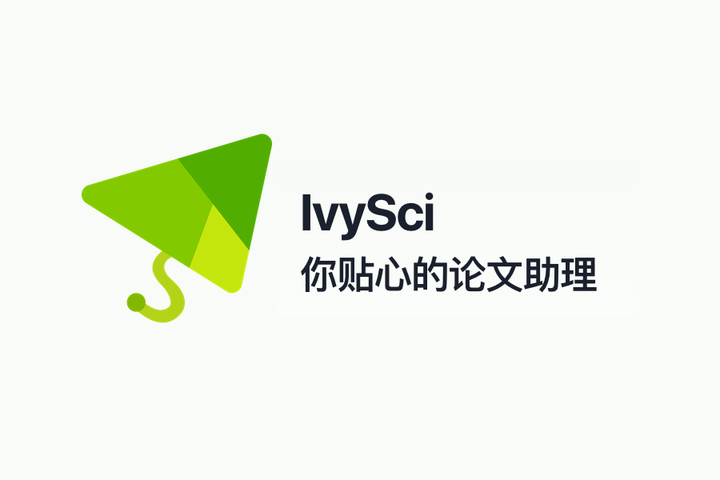Tata Kelola Pembangunan Berkelanjutan dalam Upaya Menghadapi Konflik Agraria di Kawasan Transmigrasi Provinsi Lampung
DOI:
https://doi.org/10.35166/jipm.v8i1.94Keywords:
Agrarian Conflict, Land Certification, Transmigration PolicyAbstract
Indonesia’s transmigration program, despite its scale and strategic intent, has generated persistent structural issues, including agrarian disputes and social tensions. This study investigates the ineffectiveness of sustainable development governance in transmigration areas and proposes evidence-based policy solutions, with a focus on Lampung Province. Employing a mixed-methods approach, the research integrates in-depth interviews, focus group discussions, field observations, and literature review. The study was conducted in four transmigration sites: Rawa Pitu, Mesuji, Way Tuba, and Ngambur. Data were collected from 35 key informants and secondary sources, and analyzed thematically and spatially using ArcMap 10.8.2 software, alongside a descriptive-narrative method. The findings reveal that, by 2023, a total of 6,397 land plots across 24 locations remained uncertified due to overlapping claims. Besides, approximately 40% of issued land certificates did not match the actual physical boundaries. As of 2024, 65% of land disputes have not been resolved, primarily due to institutional fragmentation and overlapping mandates between the Ministry of Agrarian Affairs and Spatial Planning/National Land Agency (ATR/BPN) and the Ministry of Environment and Forestry (KLHK). Social conflicts, such as those observed in Papan Rejo Village, reflect the limitations of top-down policy approaches and the neglect of local communities’ historical land rights. The study recommends structural reforms in integrating land governance systems, accelerating spatially-based land certification, and adopting inclusive and participatory conflict resolution mechanisms.
References
Alfit, S. V., & Koeswahyono, I. (2022). Penyelesaian sengketa hak atas tanah petuanan dalam hal penyediaan tanah untuk penyelenggaraan program transmigrasi. Jurnal Hukum dan Kenotariatan, 6(1), 258–277. https://doi.org/https://doi.org/10.33474/hukeno.v6i1.14158
Amrin, R. N., Zaen, H. M., Nugraha, M. P. D., Putra, P., Zaini, R. I., & Sangkay, Y. R. (2021). Permasalahan pertanahan di daerah berkepadatan penduduk rendah. Jurnal Widya Bumi, 1(7), 1–12. https://doi.org/https://doi.org/10.31292/wb.v1i1.4
Armawi, A. (2020). Nasionalisme dalam dinamika ketahanan nasional. UGM Press.
Asri, H. F. (2022). Pola kolonisasi pemerintah kolonial Hindia Belanda di Lampung dan Mapili (1905-1942). Candi: Jurnal Pendidikan dan Penelitian Sejarah, 22(1), 119–135. https://jurnal.uns.ac.id/candi/article/view/72332
Balitbangda, L. (2018, April 13). Mendesak, aglomerasi perkotaan di provinsi Lampung. Badan Penelitian dan Pengembangan Daerah Provinsi Lampung. https://balitbangda.lampungprov.go.id/detail-post/mendesak-aglomerasi-perkotaan-di-provinsi-lampung
Barter, S. J., & Côté, I. (2015). Strife of the soil? Unsettling transmigrant conflicts in Indonesia. Journal of Southeast Asian Studies, 46(1), 60–85. https://doi.org/10.1017/S0022463414000617
Borras, S. (2007). Pro-poor land reform: A critique. University of Ottawa Press.
Breman, J. (1997). Menjinakkan sang kuli: Politik kolonial, tuan kebun, dan kuli di Sumatra Timur pada awal abad ke-20. Pustaka Utama Grafiti.
Breman, J. (2014). Keuntungan kolonial dari kerja paksa: Sistem priangan dari tanam paksa kopi di Jawa 1720-1870. Yayasan Pustaka Obor Indonesia.
Budianto, A., Mustofa, M. B., & Hasanah, U. (2022). Transmigrasi lokal di Lampung: Varian kebijakan perpindahan penduduk di Indonesia. Al-Isnad: Journal of Islamic Civilization History and Humanities, 2(1), 1–11. https://doi.org/10.22515/isnad.v2i1.3661
Creswell, J. W. (2016). Research design: Pendekatan metode kuantitatif, kualitatif, dan campuran (A. F. & R. K. P. (Penerjemah)). Pustaka Pelajar.
de Wee, G. (2022). Comparative policy analysis and the science of conceptual systems: A candidate pathway to a common variable. Foundations of Science, 27(2), 287–304. https://doi.org/10.1007/s10699-021-09782-5
Dhiaulhaq, A., & McCarthy, J. F. (2020). Indigenous rights and agrarian justice framings in forest land conflicts in Indonesia. Asia Pacific Journal of Anthropology, 21(1), 34–54. https://doi.org/10.1080/14442213.2019.1670243
Hardjono, J. (1988). The Indonesian transmigration program in historical perspective. International Migration, 26(4), 427–439. https://doi.org/10.1111/j.1468-2435.1988.tb00662.x
Hechter, M. (2017). Internal colonialism: The celtic fringe in British national development. University of California Press. https://doi.org/10.4324/9780203788332
Junaidi, J., Rustiadi, E., Sutomo, S., & Juanda, B. (2012). Perkembangan desa-desa eks transmigrasi dan interaksi dengan wilayah sekitarnya serta kebijakan ke depan: Kajian di Provinsi Jambi. Institut Pertanian Bogor. https://repository.ipb.ac.id/handle/123456789/58350
Kebschull, D. (2020). Transmigration in Indonesia. Routledge. https://doi.org/https://doi.org/10.4324/ 9780429339547
Kumalatina, Rr. F., Pakasi, S. E., & Waney, N. F. L. (2022). Analisis ketersediaan tanah di kawasan pariwisata Likupang. Agri-Sosioekonomi, 18(1), 179–190. https://doi.org/10.35791/agrsosek.v18i1.55198
Kusworo, A. (2014). Pursuing livelihoods, imagining development: Smallholders in highland Lampung, Indonesia. ANU Press.
Levang, P. (2003). Ayo ke tanah sabrang: Transmigrasi di Indonesia. Kepustakaan Populer Gramedia.
Li, T. M. (2011). Centering labor in the land grab debate. Journal of Peasant Studies, 38(2), 281–298. https://doi.org/10.1080/03066150.2011.559009
Li, T. M. (2021). Commons, co-ops, and corporations: Assembling Indonesia’s twenty-first century land reform. Journal of Peasant Studies, 48(3), 613–639. https://doi.org/10.1080/03066150.2021.1890718
McCarthy, J. F. (2010). Processes of inclusion and adverse incorporation: Oil palm and agrarian change in Sumatra, Indonesia. Journal of Peasant Studies, 37(4), 821–850. https://doi.org/10.1080/03066150.2010.512460
Mutolib, A., & Nuraini, C. (2022). Women’s multiple roles and social pressure in agrarian society. Sawwa: Jurnal Studi Gender, 17(2), 173–192. https://doi.org/10.21580/sa.v17i2.13687
Otten, M. (1986). Transmigrasi: Myths and realities Indonesia resettlement policy, 1965-1985. https://iwgia.org/images/publications//0167_57_transmigrasi.pdf
Pratiwi, A., Matous, P., & Martinus, K. (2022). Transmigration programs and migrant positions in rural community knowledge networks. Journal of Rural Studies, 95, 391–401. https://doi.org/10.1016/j.jrurstud.2022.09.019
Rizaldi, M., Mujiburohman, D. A., & Pujiriyani, D. W. (2023). Mediasi sebagai alternatif penyelesaian sengketa tumpang tindih tanah antara hak guna usaha dan hak milik. Widya Bhumi, 3(2), 137–151. https://doi.org/10.31292/wb.v3i2.62
Salim, M. N., Utami, W., Wulan, D. R., Pinuji, S., Mujiati, M., Wulansari, H., & Dwijananti, B. M. (2021). Menyoal praktik kebijakan reforma agraria di kawasan hutan. Bhumi: Jurnal Agraria dan Pertanahan, 7(2), 149–162. https://doi.org/10.31292/bhumi.v7i2.476
Salim, M. N., Wulan, D. R., & Pinuji, S. (2021). Reconciling community land and state forest claims in Indonesia: A case study of the land tenure settlement reconciliation program in South Sumatra. Forest and Society, 5(1), 1–22. https://doi.org/10.24259/fs.v5i1.10552
Sinaga, R. M., Sudjarwo, & Maydiantoro, A. (2022). The meaning of the place name on the perspective of Javanese transmigrants in Lampung, Indonesia. WSEAS Transactions on Environment and Development, 18, 218–225. https://doi.org/10.37394/232015.2022.18.23
Stanley, S. (1994). Seputar Kedung Ombo. ELSAM & INFID.
Sukmawati, A. D. (2016). 1969–2015: Cerita tiga dekade politik perpindahan masyarakat di Indonesia. Jurnal Masyarakat & Budaya, 18(3), 185–195.
Suryanagara, M. I. S. (2024). Transformasi transmigrasi: Kesejahteraan untuk semua. Kompas.id, 1–2. https://www.kompas.id/artikel/transformasi-transmigrasi-kesejahteraan-untuk-semua
Wijaya, I., & Ardianta, Y. (2020). Kondisi DAS di Lampung kritis. RRI.co.id, 1–1. https://rri.co.id/bandar-lampung/daerah/932381/kondisi-das-di-lampung-kritis
Wilson, C. (2008). Ethno-religious violence in Indonesia: From soil to God. Routledge. https://doi.org/10.4324/9780203928981
Wong, D. (1996). Book review: Crossing borders: Transmigration in Asia-Pacific. Asian and Pacific Migration Journal, 5(1). https://doi.org/10.1177/011719689600500111
Wu, X., Ramesh, M., & Howlett, M. (2015). Policy capacity: A conceptual framework for understanding policy competences and capabilities. Policy and Society, 34(3–4). https://doi.org/10.1016/j.polsoc.2015.09.001
Wulandari, C., & Kurniasih, H. (2019). Community preferences for social forestry facilitation programming in Lampung, Indonesia. Forest and Society, 3(1), 114–132. https://doi.org/10.24259/fs.v3i1.6026
Downloads
Published
Issue
Section
License
Copyright (c) 2025 Journal of Infrastructure Policy and Management (JIPM)

This work is licensed under a Creative Commons Attribution-ShareAlike 4.0 International License.















